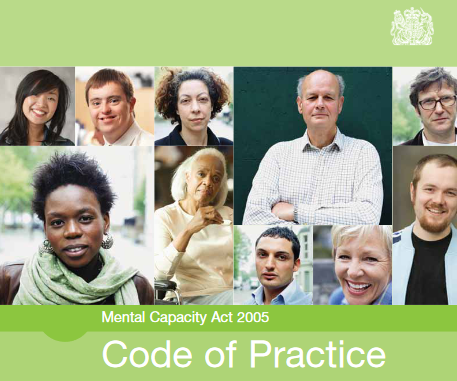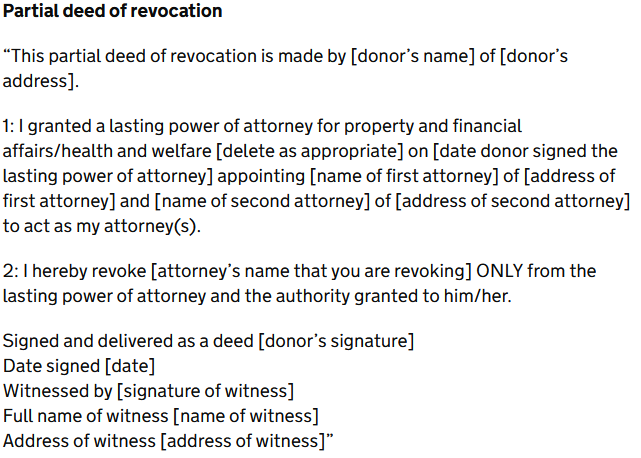Can I remove an attorney from a Lasting Power of Attorney?
In the previous blog I answered the question “Can I stop being an attorney?” I wrote from the perspective of an attorney wanting to relinquish the role or disclaim the attorneyship and described how this could be carried out. To follow the theme of stopping being an attorney, this blog describes how a donor could remove an attorney. The final blog in the series discussing how an attorneyship may stop will covers an attorney’s role ending due to factors outside the control of the donor or attorney.
I will begin by recapping what a Lasting Power of Attorney is, then refer to mental capacity in relation to a Lasting Power of Attorney and, finally, describe how a donor could remove an attorney.
What is a Lasting Power of Attorney?
A Lasting Power of Attorney (LPA) is a legal document that lets a person appoint one or more people to make decisions on their behalf. This gives more control over what happens if a person has a sudden accident, illness or a long-term health condition and cannot make their own decisions.[i] The people appointed to make decisions are called attorneys and the person making a Lasting Power of Attorney is called the donor.
There are two different types of Lasting Power of Attorney, one for Health and Welfare and one for Property and Finance; I have blogged about how to make a Lasting Power of Attorney previously and you can find out more here.
Mental capacity and Lasting Power of Attorney
To create a Lasting Power of Attorney a person must have the capacity to do so. The GOV.UK website explains a person who has capacity if the can meet the criteria below:
The law that sets out the framework for capacity is called the Mental Capacity Act 2005 and you can find valuable information about the Mental Capacity Act in the Mental Capacity Act 2005 Code of Practice
Assessing mental capacity is a very nuanced process and must always be decision specific, something I explore in the podcast Mental Capacity: it’s decision specific not a binary concept with Dr Maggie Keeble. A person may be able to make a decision at another time or about other issues – to say simply a person has “lost capacity” misses these important details.
While a person still has capacity to do so, it is their right to remove an attorney from their Lasting Power of Attorney.
How can a donor remove an attorney from a Lasting Power of Attorney?
To remove an attorney from a registered Lasting Power of Attorney the donor must complete a “partial deed of revocation”. The following words must be used, replacing the words in square brackets with relevant details:
The partial deed of revocation should be sent to the Office of the Public Guardian at
Office of the Public Guardian
PO Box 16185
Birmingham
B2 2WH
The attorney (and any other attorneys in the Lasting Power of Attorney) should also be informed.
Conclusion
In the previous blog I explained why it is important, when making a Lasting Power of Attorney, to have more than one attorney or to include a replacement attorney. I frequently have clients considering appointing a single attorney, typically a spouse, and always explain the vulnerability of a document with just one attorney. If that attorney stops acting for any reason, to have the back up of a second primary attorney or a replacement attorney makes good sense.
Having identified how an attorney or a donor could end the attorneyship role, my next blog will cover an attorney’s role stopping due to factors outside the control of the donor or attorney.
If the blog has helped you or provided information and you would like to support my ongoing work, head to Buy me a coffee – thank you!
If you have any questions or would like to enquire about drafting a Lasting Power of Attorney




